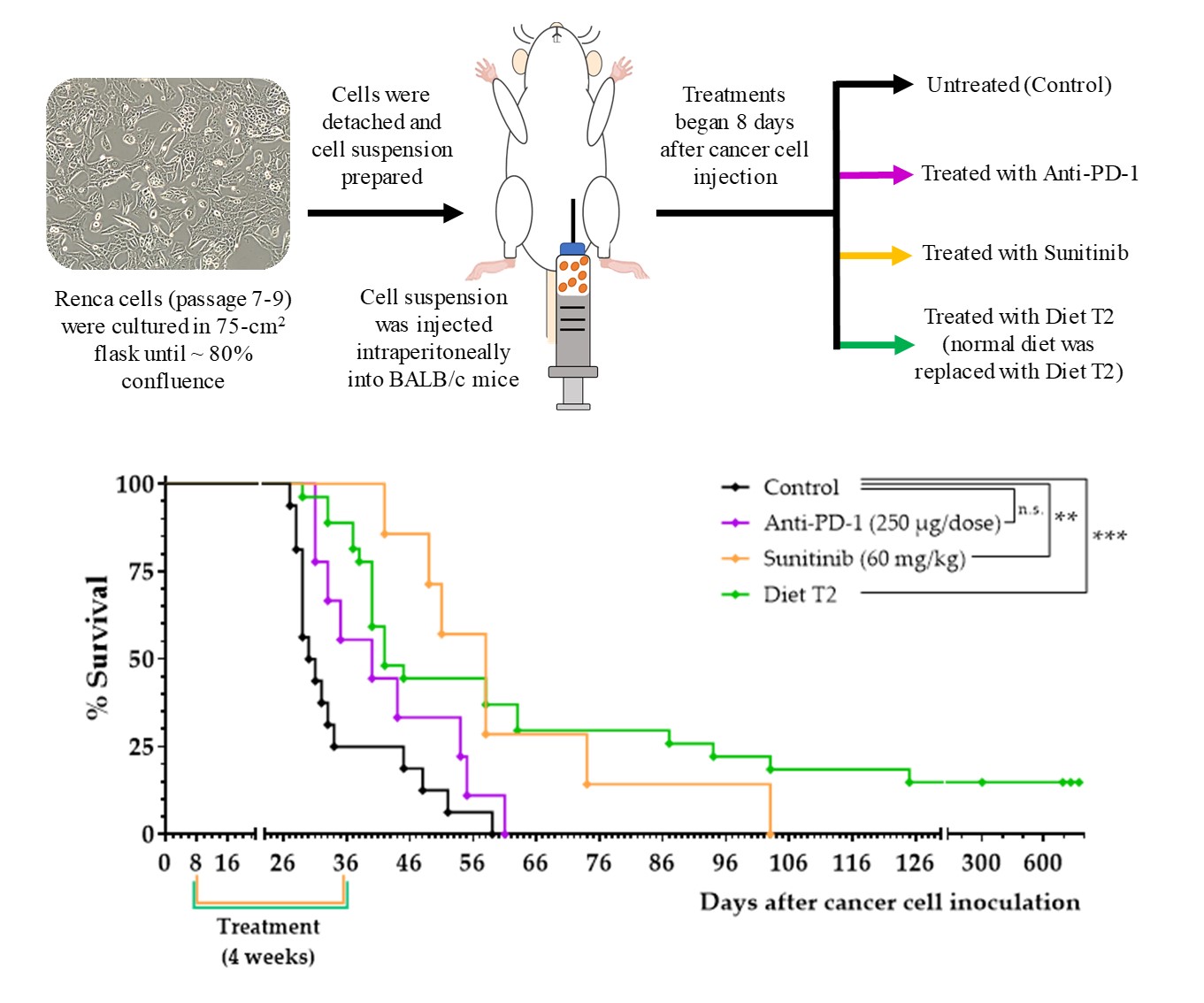Targeted therapies with antiangiogenic drugs (e.g., sunitinib) and immune checkpoint inhibitors (e.g., anti-PD-1 antibodies) are the standard of care for patients with metastatic renal cell carcinoma. Although these treatments improve patient survival, they are rarely curative. We previously hypothesized that advanced cancers might be treated without drugs by using artificial diets in which the levels of specific amino acids (AAs) are manipulated. In this work, after showing that AA manipulation induces selective anticancer activity in renal cell carcinoma cells in vitro, we evaluated the anticancer activity of 17 artificial diets in a challenging animal model of renal cell carcinoma. The model was stablished by injecting murine renal cell carcinoma (Renca) cells into the peritoneum of immunocompetent BALB/cAnNRj mice. Mice survival was markedly improved when their normal diet was replaced with our artificial diets. Mice fed a diet lacking six AAs (diet T2) lived longer than mice treated with sunitinib or anti-PD-1 immunotherapy; several animals lived very long or were cured. Controlling the levels of several AAs (e.g., cysteine, methionine and leucine) and lipids was important for the anticancer activity of the diets. Additional studies are needed to further evaluate the therapeutic potential of this simple and inexpensive anticancer strategy.

